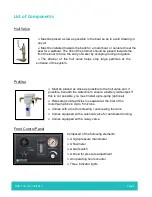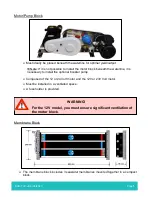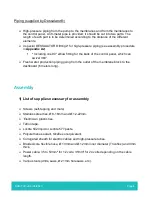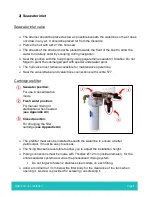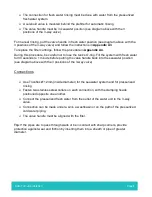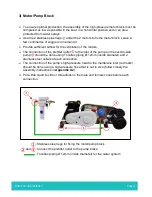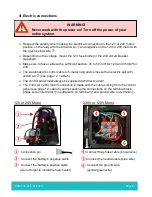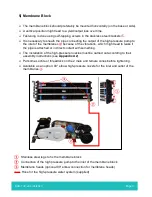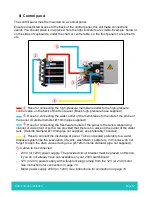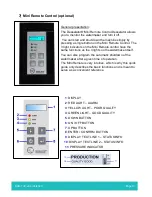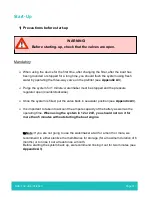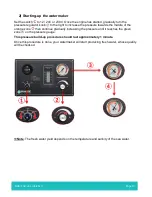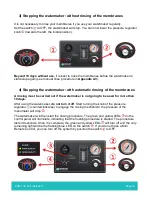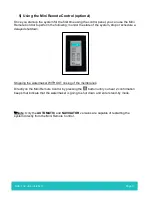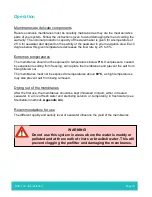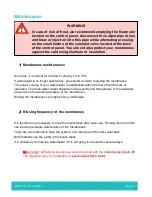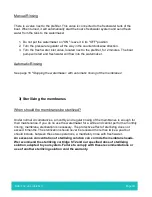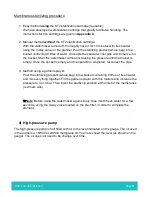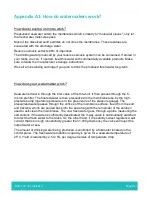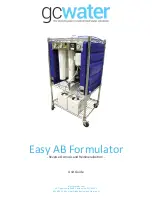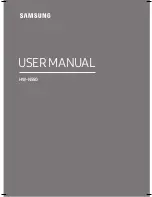
DUO-100 v2.4 (04/2021)
Page 18
Operation
Membranes are delicate components
Reverse osmosis membranes must be carefully maintained as they are the most sensitive
parts of your system. Follow the instructions given to avoid damaging them and voiding the
warranty. The nominal production capacity of the watermaker is given for a temperature of
25°C for seawater and depend on the salinity of the seawater in your navigation area. Each
degree below this given temperature decreases the flow rate by 2.5 to 5%.
Extremes temperatures
The membranes should not be exposed to temperatures below
0°C
. Overpressure, caused
by expansion resulting from freezing, can rupture the membranes and prevent the salt from
being filtered out.
The membranes must not be exposed to temperatures above
60°C
, as high temperatures
may also prevent salt from being removed.
Drying out of the membranes
After the first use, the membranes should be kept immersed in liquid, either in treated
seawater, in a mix of fresh water and sterilizing solution or, temporarily, in fresh water (see
Sterilization methods,
Appendix A4
).
Recommendations for use
The different quality and salinity level of seawater influence the yield of the membranes.
WARNING!
Do not use this system in areas where the water is muddy or
polluted and at the mouth of rivers or brackish water. This will
prevent clogging the prefilter and damaging the membranes.

